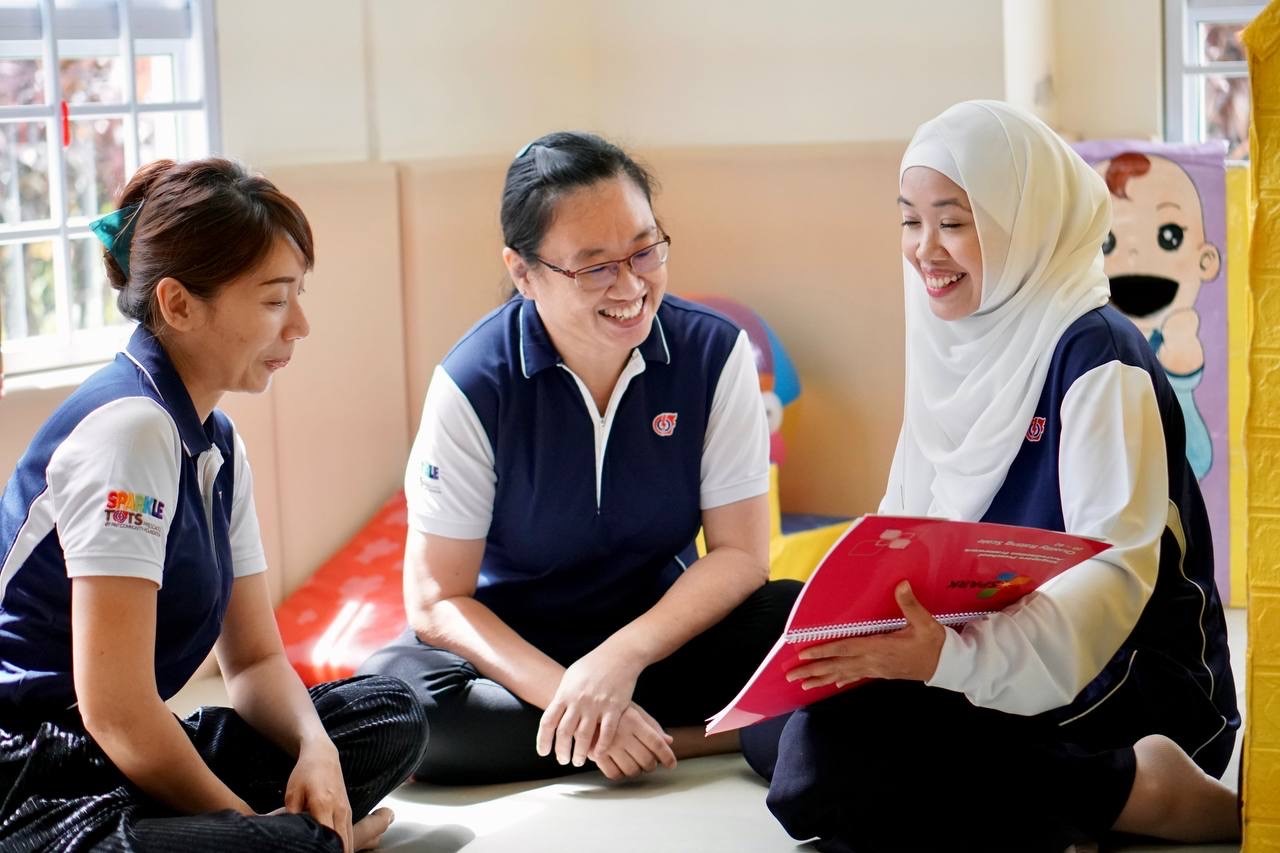Nurturing a Love For The Mother Tongue

It was the encouragement she received from her mother tongue language (MTL) teacher when she was a student that inspired Li Yu Jie, a senior teacher at Sunflower Preschool @ Hougang, to take up the vocation herself. This teacher would praise Yu Jie when she did well and motivate her to try harder when she did not. That, plus her love for children, led her to a career in early childhood care and education.
In her 16 years as an early childhood educator, Yu Jie has come across many children. Every child is unique, hence presenting her with opportunities to hone her nurturing and teaching capabilities. Her open mind, innovative approach and caring attitude are also the qualities that have enabled her to enjoy her role and overcome any challenges she might face.
"We must learn how to love them and understand what they need. They need not be good in learning or writing, but they must feel that we love them."
Making Language Learning Enjoyable
Singaporean children are likely to be more exposed to the English language than to Chinese on most days. As a result, their standard of Chinese tends to be poorer. Realising this situation, Yu Jie placed utmost importance on using a variety of methods to get her students interested in the Chinese language.

For example, a child in her class disliked Chinese lessons because he was having difficulty writing the characters. To encourage him, Yu Jie asked him to write simple Chinese characters on the board every Chinese lesson, and praised him for doing so each time. The positive feedback worked. Within a month, the boy began enjoying Yu Jie’s Chinese classes, and was better able to follow the lessons.
Incorporating games into lessons has also proven beneficial. Yu Jie has used activities to inject fun into her Chinese lessons. Such activities include the "Fishing Game" for learning Chinese characters, and "Magic Box", a theme-matching and role-playing game in Chinese.

"One of my children picked the "teacher" card," related Yu Jie. "The child imitated me and the way I teach. It was amusing and reassuring, too. It showed that the children were paying attention and absorbing what was being taught during my lessons."
Taking Chinese Lessons Outdoors
Yu Jie intentionally links lessons to everyday life so that the children appreciate the relevance of the language. After a lesson on colours, for example, Yu Jie consciously extended the lesson to talk about the colours of the vegetables, rice and fruits they ate at lunch, and the various objects they encountered during outdoor play.

Under her centre’s Multiple Intelligences (MI) domains, the children take part in outdoor activities for lessons that integrate ‘word smart’ and ‘body smart’ domains. Yu Jie notes that the multitude of stimuli in the outdoor environment arouses children’s curiosity, evokes their desire to explore and observe their surroundings. Taking advantage of this, she encourages them to describe their experiences, including the textures, colours and sizes of the objects around them. This helps build their Chinese vocabulary effortlessly as they are doing so through play. “They want to describe the colours of the leaves and trees, the texture of tree bark, how tall the trees are, and more,” Yu Jie recalls. “They’re learning without even realising it, while enjoying the beauty of nature.”
Going The Extra Mile
Yu Jie tells of an N2 Chinese child who returned from Australia to Singapore at the age of three. Missing out on early exposure to the language meant that he had a limited vocabulary and was reluctant to converse in Mandarin. Yu Jie patiently took the time to build rapport with him, engaging him in Mandarin conversations and games. Slowly, she progressed to simple and common phrases, such as “Have you eaten your breakfast?” Knowing that he liked to sing and dance, she got him to participate in the Body Smart Learning Corner with children who were more proficient in Chinese. These and other initiatives helped improve his Chinese language abilities tremendously. After just half a year, he had the confidence to converse with his peers in Mandarin.
“We need to analyse the learning abilities of each child, use the appropriate resources, follow the weekly lesson plan diligently, as well as prepare and carry out lessons to continuously engage the children.”
Despite these success stories, Yu Jie does not rest on her laurels. When asked about her plans and goals as a Chinese teacher and early childhood educator, Yu Jie reiterates the need to keep improving, “I will place more emphasis on how to develop a child’s knowledge, and how to arouse their interest in learning Chinese, accommodating their strengths and weaknesses, to better educate the children.”
“It is heartening to hear the children greeting me with a ‘早安, 李老师’ when I walk past them in the morning. It brightens my day, and motivates me to want to give even more to the children.”
.jpg?sfvrsn=debf4f57_1)





